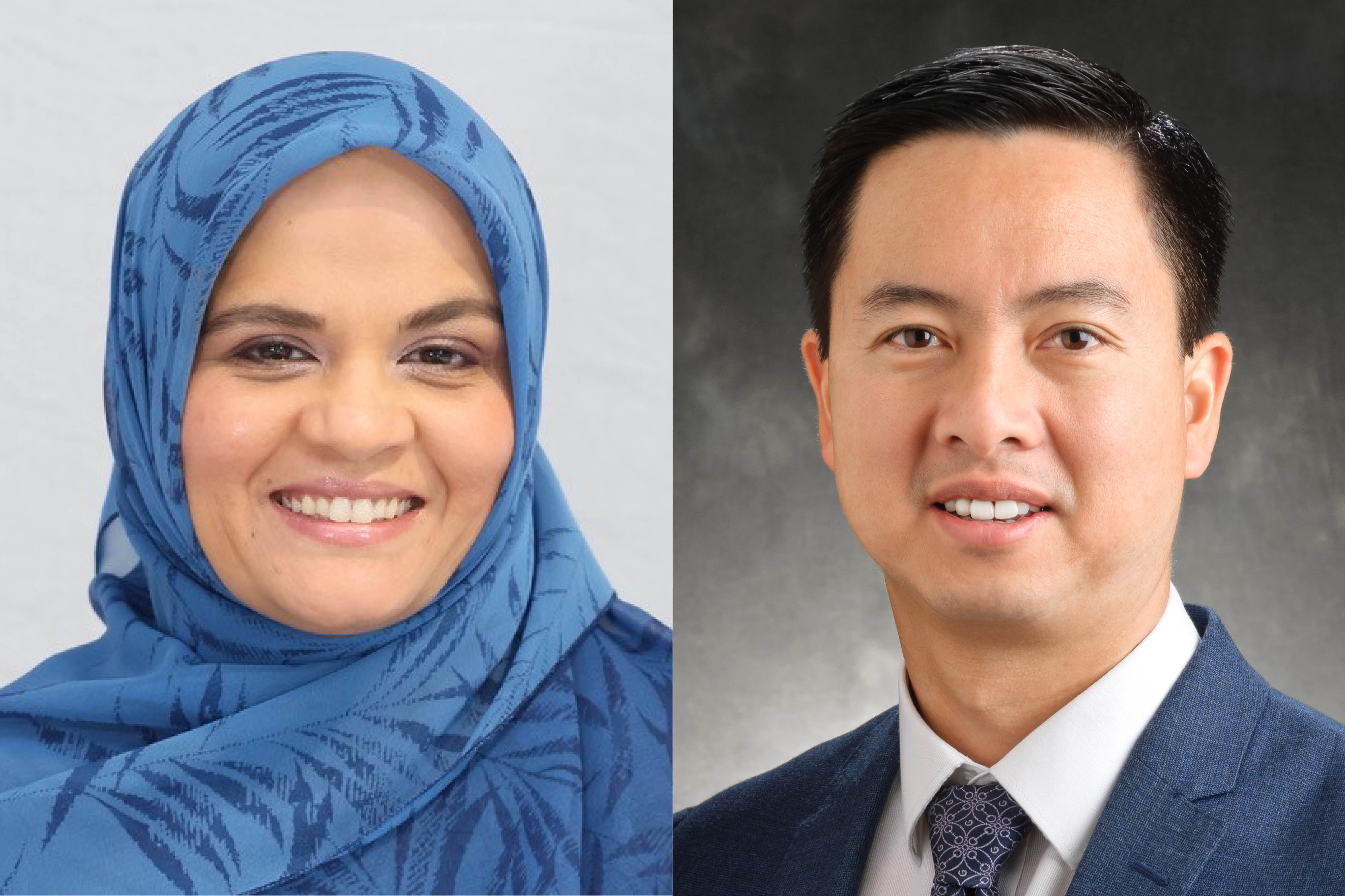
Harnessing AI to improve patient care
Professor Michael Dinh and Professor Farah Magrabi are exploring AI in patient care.

At RPA Hospital, two professors are harnessing the power of artificial intelligence in patient care.
Professor Michael Dinh and Professor Farah Magrabi have embarked on a world-first study exploring how artificial intelligence can assist in interpreting chest x-rays in emergency departments.
"Half of all emergency department patients get a chest x-ray, and if we can use artificial intelligence to identify findings on those x-rays and make an immediate diagnosis, it will save doctors time that they can spend on caring for our patients," Professor Dinh, founder and director of the RPA Green Light Institute, said.
"It's an exciting study that we anticipate will have a tangible impact on staff and patients in our emergency departments and unlock critical insights into how we can take more significant advantage of artificial intelligence in healthcare."
The potential for artificial intelligence to improve patient care is highly topical and is one of the fascinating subjects being discussed at our Sydney Innovation and Research Symposium on Friday 21 July.
At the RPA Green Light Institute, Professor Dinh leads a team that aims to improve emergency care and patient outcomes through collaborative research, innovation and training.
He and Macquarie University Professor Magrabi’s study tests medical-grade artificial intelligence software regulated by the Therapeutic Goods Administration to support clinicians in making accurate diagnoses and quicker decisions.
"These kinds of tools can also improve patient engagement with their care, especially when you're thinking about self-management of chronic disease,” said Professor Magrabi, an expert in the design and evaluation of digital health and artificial intelligence for clinicians and patients.
“Patients are actually doing a lot of the hard work there, so you can design and use these tools to support patients in managing their health."
"By helping patients and better supporting them, you can have more appropriate access to health services so people who need the ED will definitely go to the ED, but the people who don't need emergency care will not go and block up the department."
Australia's healthcare system is unique, she added, and developing technology that is fit for purpose to support its seamless integration across healthcare facilities is crucial.
"We need to be doing things here in Australia in the confines of the systems that we trust," said Professor Magrabi.
"So, I'm extremely optimistic and excited for what lies ahead because we seem to be at the cusp where there is a lot that is going to happen very quickly in the technology space."
Artificial intelligence could improve healthcare access but governance and risk management should be considered to ensure it's suitable for the working environment and patient safety, she added.
"There's a lot of work that organisations put in to make sure that when these kinds of technologies are introduced, it's done in a safe and responsible way, that doesn't disrupt the clinical workflow," Professor Magrabi said.
The public release of ChatGPT earlier this year has generated conversation about how artificial intelligence will transform our workplaces, occupations and communication.
Could it transform how patients recover after a hospital stay, pull documents for a doctor on a ward or get a medical graduate through their induction with ease?
These are questions Marc Pelusi, Director Service Delivery within the District's Digital Health and Innovation service, is investigating.
"I feel like we're at the beginning of something really big again and [we] would be taking a tenfold leap in productivity if we can use this correctly," Mr Pelusi said.
Mr Pelusi and his team are working with organisations such as Microsoft to understand how Azure AI, a tool similar to ChatGPT and Bing Chat, can be adapted to support healthcare professionals in clinical settings.
"ChatGPT has this general knowledge area where you can ask it anything, but for health and medical purposes, it needs to be very specific," he said.
"If you're asking ChatGPT a clumsy question, you'll get a clumsy answer, but you may not know it's a clumsy answer because you're not experienced in that topic area.
"It's about training those models on specific data that we have, that we know is high-quality data."
Mr Pelusi compares artificial intelligence's transformative potential to the internet's game-changing introduction.
"The internet was the last really big thing, and I feel like this will have such a big impact on the way we do things," he said.
"Generative AI will really increase the speed of how we get things done and make knowledge more accessible."
Sydney Innovation Week runs from July 17-21, culminating in the two-day Sydney Innovation and Research Symposium.
The week creates opportunities for inspiring conversations about innovation and discovery that improves healthcare for our patients and community.